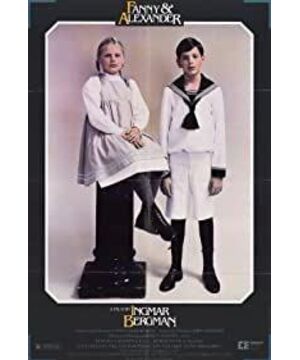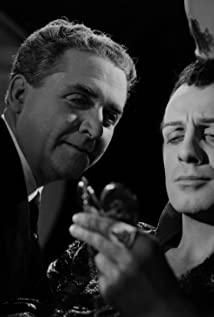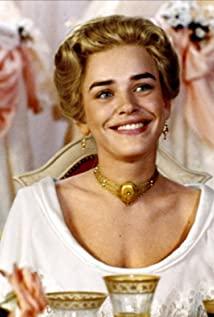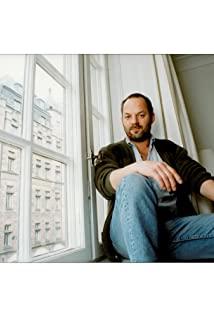Originally created in 2013
Of all Bergman's works I've seen, "Fanny and Alexander" is the most ambitious. It is true that Bergman's perspective is always inseparable from family and religion, and always touches on the background of the times and society. However, it is not necessary to talk about the mountains and rivers of the family, the country, and the heroes of the world. A Dream of Red Mansions, which describes the rise and fall of feudal families, is already all-encompassing. On the contrary, the old man Jin Yong, who often chose the struggle between the Liao and Song Dynasties and the rise and fall of the Ming and Qing dynasties as the background, was still limited by the sword, light and sword, and could not go deep. The mastery of the grand theme is mainly reflected in the narrative, character building and theme grasp. The context is complex but not chaotic, the characters are numerous and vivid, and finally the parent's shortcoming is raised to the issue of belief. The skill of the old man is commendable. The details of this movie are too excellent, and there is too much to say. In the end, I can only randomly pick it up in this vast sea and dedicate it to the endless Bergman and the endless ukiyo-e.
Characters - different moods, each is good at winning
It is not unintentional to mention "A Dream of Red Mansions". The protagonist Alexander, who is like the second master of Bao, has a terrifying sister Mai beside him. The other members of the family have different personalities. The peaceful and wise father, the irritable but innocent uncle Carl, the heroic and romantic Uncle Gustavo... Of course, in a wealthy family, there is an "old ancestor" like a mother - Alexander's grandmother. The cohesion of a family is always in the elderly. Without the elders as glue, brothers and sisters are inevitably alienated, both ancient and modern, at home and abroad.
The film is unfolded from Alexander's perspective. The identity and experience of this child are very similar to Bergman's. I believe this is an arrangement made by the director's subconscious to put his own perspective into the role. Alexander had a strong fear of time and death. At the beginning of the film, he hides under the table for fear of the clock ticking in the empty house; when his father died, he hid in his grandmother's arms, you can see that he is very insecure. It can be said that he is too smart and sensitive, and perhaps also has a bit of persecution paranoia, so it is reasonable that it is difficult to establish trust with his stepfather. This character resonates with me personally, and I can understand Alexander's situation and mentality: a child with a pair of transparent eyes is scary in the eyes of most people.
(Alexander hears the clock and feels the fear of time and death)
Alexander's father, an unsuccessful actor, collapsed while rehearsing "Hamlet," when his role was Hamlet's father. After his death, he appeared in front of his children many times and contacted his mother's remarriage, which made the whole film have a wonderful connection with "Hamlet". Alexander's stepfather, the Bishop, was a complete villain. In his first appearance, that is, at the funeral of Alexander's father, Alexander noticed the unusual relationship between the bishop and his mother. At this time, Alexander became hostile to him. For every man, the most difficult thing to accept should be His mother's holiness was defiled. "It was less than a month before she got married. It was a shame that she slipped into the quilt of incest so lightly." - "Hamlet", the initiator of all this, of course, was the bishop. Not only did he become the new owner of his mother, but he also took over the patriarchy arrogantly. When facing Alexander, he used to grab Alexander's head or the back of his neck with his hands. This action is not only caressing, but also a kind of control. It was this control that overwhelmed Alexander and Fanny. By the end of the film, the bishop's ghost still slaps Alexander on the back of the neck, knocking him to the ground. This specter of religious power would haunt Alexander forever. Audiences should be offended by the role of the bishop, but doesn't everyone justify their motives when they do things? He believes that he is standing with God and that he represents public knowledge and morality. It was not until Fanny and Alexander's escape (or death) that he had reflections and doubts about his actions.
(Alexander's father suffered a sudden illness while rehearsing "Hamlet") (The Bishop's Control of Alexander)
(The bishop attended the funeral with his mother)
(Mother's mourning at father's funeral)
The Gustavo couple is also the focus of the film's portrayal. The couple's romantic man and woman's shrewdness reminded people of Jia Lian and Wang Xifeng. Especially Gustavo's wife, when facing her husband's beloved maid Mai Mai, she gave both kindness and grace. The moment she smiled and looked at Mai's beauty, she greeted her with a slap in the face the next moment. But she was not as resentful as Wang Xifeng, and when Mai finally left Stockholm with her child, she still sincerely retained her. This character who hides a needle in the cotton but does not lose love is very brilliant. Of course, it is related to the detailed description of the screenwriter, and it is inseparable from the actor's meaty performance.
(Mrs. Gustavo and the Wheat)
The Core - The Inquiry of the Existence of God
Bergman is one of those people who is skeptical of religion, perhaps because of his childhood. However, many people equate the bishop in the movie with Bergman's father, which is probably a bit wishful thinking. But the shadow that religion brought to his childhood runs through his middle and later works. In "Wild Strawberries", Bergman arranges a debate about the existence of God, and in "Silence" and "Winter Light", his God skepticism is even more firm.
(Fanny and Alexander under house arrest)
But for a master like Bergman, the either-or conclusion is not something he admires. So we see an argument similar to "Pi's Fantasy Drifting" in the movie: the interpretation of the story depends on your attitude towards God. We all know that Ang Lee is a big fan of Bergman, and it's no accident that his latest work shares the same perspective as the film. Returning to the content of the movie, when the Jewish grandfather Isaac rescued Fanny and Alexander, the priest saw through the plot. As he kneels helplessly on the ground, a beam of holy light is projected on his face, and here is a turning point in the plot. Fanny and Alexander were then freed from miserable lives, and the bishop was punished for his actions. The family reunited happily again. Before this fairy tale ending arrives, there is a lot to ponder. The most important scene is when the bishop rushes into the room where Fanny and Alexander are under house arrest. The bodies of the two little protagonists are already lying on the floor, beside them is the disheveled and wailing mother. This scene seems to contradict the subsequent plot, but it can be explained by looking for the answer from the narrative method of "Youth School". From here, the direction of the story begins to diversify: maybe it was God manifesting in Isaac, and Fanny and Alexander lived happily ever after; maybe Fanny and Alexander had died in their stepfather's house, and everything that followed was Fantasy before the child's death; there may be a miracle after the death of Fanny and Alexander... In short, Bergman deliberately blurred the boundaries between reality and miracle, and finally the grandmother made the best summary: " everything is possible."
(The holy light projected on Isaac's face)
(Dead Fanny and Alexander)
(Grandma reads to Alexander at the end of the movie)
Skills - return to the narrative, tell the story
Those who are familiar with Bergman should know that in his middle and late works, he extremely weakens the plot and strengthens the metaphor. For example, in "Masquerade" and "Shouting and Whispering", the performance of actors is often a kind of performance art, and the camera lens and montage are also full of experimentation. When it comes to "Fanny and Alexander", the narrative is much smoother, and the beginnings and transitions of the story are reasonable. Of course, many places still follow his consistent style, and the use of lenses and colors is still its own.
(Sculptures on the street, I don't know what the allusions are)
(grandmother's big house)
(After his father died, Alexander could still see him)
The picture of this film is exactly the same as that of "Cry and Whisper". Both colors and lighting are exaggerated and bright. Heavy use of props and artificial light in strong colors. In the use of the main color, there is obviously a red-white-red change according to the development of the plot. Regarding the warmth and harmony of family life, Bergman used warm tones to deal with, and after the death of his father, with the change of the tone, a large number of cool tones dominated by white began to appear. And after Fanny and Alexander were rescued, Uncle Isaac's house used too much red to create a warm but dreamy effect.
(The lively scene at home at Christmas)
(The kitchen after the death of my father, turned to cool colors)
(Uncle Isaac's house, a strong and illusory red)
The film's metaphors are also more obvious. Such as the bones in the stream and the crucifix in the attic, it is not difficult to associate these things with the encounter of the protagonist. More obscure are Isaac's two nephews, whose identities are unknown to religious allusions.
(The crucifix and the skeleton of some monster)
Without a doubt, this is a very great work. What is not understood in a great work needs to be chewed over and over again. If I interpret it frame by frame, the project is too huge, and I feel powerless, so I give up. There is still a lot of information about the film in the book and online, and friends who are interested can check it out for themselves.
(Can't get rid of the shadow of the bishop)
View more about Fanny and Alexander reviews











